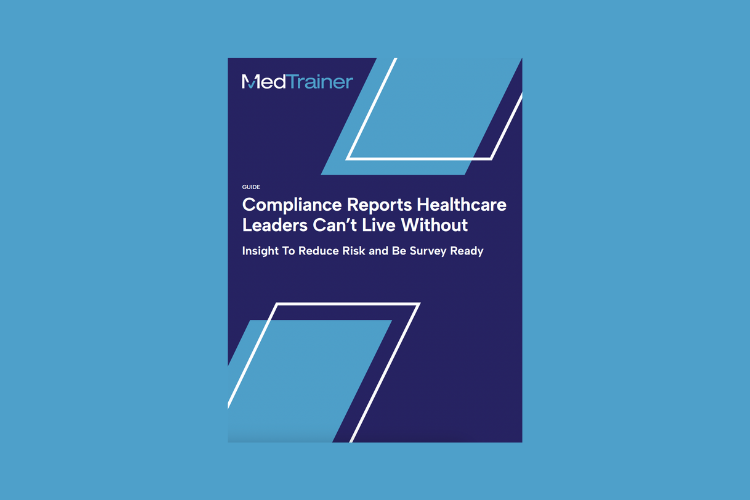Maintaining regulatory compliance has never been easy, and the pace of change isn’t slowing. There are always new regulations, evolving standards, and shifting best practices. This can present a significant challenge for healthcare organizations that have not adopted a proactive and dynamic approach, which often includes adopting technology and strategic planning.
In this article, I will share the impact of change on regulatory compliance and a few strategies to reduce disruption. Let’s start by defining regulatory compliance.
What Is Regulatory Compliance?
Regulatory compliance in healthcare is a vital roadmap for professionals, ensuring they navigate the complex landscape of patient care with clarity and precision. Regulations are essential because they provide clear guidelines for keeping patients safe, especially when the “right thing” is not always immediately apparent. Without these rules, healthcare providers might make well-intentioned decisions that ultimately cause more harm than good.
However, regulations also come with challenges, such as administrative burdens and the potential for overly rigid guidelines that may not always accommodate individual patient needs or evolving medical practices. Balancing compliance with flexibility is crucial to ensuring regulations enhance rather than hinder patient care outcomes.
Understanding the Impact of Accelerating Regulatory Changes
According to the American Hospital Association, health systems, hospitals, and post-acute care facilities must follow 629 regulatory requirements across nine domains. Those entities spend $39B a year solely on administrative activities related to regulatory compliance. For hospitals, compliance costs are $1,200 per patient admission in administrative expenses. As if that weren’t challenging enough, regulations evolve rapidly, and that change is accelerating. When regulations shift, the primary responsibility for adjusting falls on the shoulders of the organization’s compliance officer and their teams. These professionals encounter numerous obstacles in managing compliance processes:
Increased Complexity
- Frequent Updates: Frequent updates overwhelm compliance teams, necessitating continuous policy revisions and careful risk identification. With an accelerating rate of change, hospitals should plan to allocate more time and resources to compliance efforts. Utilizing efficient compliance management tools can streamline these processes, ensuring healthcare organizations maintain regulatory adherence effectively amid evolving requirements.
- Interconnected Regulations: Many regulations are interconnected, meaning changes in one area can impact compliance in others. This complexity requires meticulous tracking and adaptation.
Operational Disruptions
- Workflow Interruptions: Implementing new regulations often disrupts established workflows. Staff must be retrained, and processes must be adjusted, which can temporarily reduce efficiency and productivity.
- Resource Allocation: Constantly changing regulations require significant resources, both in terms of time and money, to ensure compliance. This can divert resources from other critical areas of the organization.
Financial Implications
- Compliance Costs: Keeping up with regulatory changes involves training, updating systems, and hiring additional compliance staff.
- Risk of Penalties: Failure to comply with the latest regulations can result in hefty fines and legal actions, which can have a severe financial impact on the organization.
Strategic Uncertainty
- Long-Term Planning: The unpredictability of regulatory changes makes long-term strategic planning challenging. Organizations may struggle to set and achieve long-term goals when the regulatory landscape constantly changes.
- Innovation Stifling: The need to constantly adapt to new regulations can stifle innovation, as resources and attention are diverted to compliance rather than growth and development.

The best compliance and credentialing reports tot surface critical insights and keep you survey ready.
How To Stay on Top of Change in Healthcare Compliance
Healthcare compliance regulations guide practices toward safe and effective patient care. However, the rapid evolution of these regulations presents growing challenges, making it increasingly difficult for organizations to stay abreast of changes. So, how can healthcare organizations keep pace? Here are a few strategies I recommend:
Build a Network
Strong networks lead to strong compliance in the dynamic world of healthcare compliance. Engage with peers, healthcare-specific vendors, and industry forums to stay informed on regulatory changes. Harness collective wisdom to strengthen compliance efforts and ensure readiness in healthcare practices.
Conduct Periodic Reviews
Set aside time once a quarter to review administrative codes, state licensing boards, federal agencies, and case text summaries to ensure you haven’t missed any critical updates. In many states, the laws change more often than at the federal level, but you can always count on a few federal changes each year.
Subscribe To Industry News
Subscribing to industry news sources, particularly from agencies like Medicare and Medicaid, will keep you current with critical updates. You should also regularly review updates to stay informed about compliance changes that may impact your organization. Being proactive in monitoring industry news will ensure readiness for regulatory audits and inspections.
MedTrainer Is a Trusted Healthcare Partner
As healthcare compliance becomes more complex, it’s paramount to rely on a trusted partner like MedTrainer who understands the intricacies of the landscape. With a customer base of over 1,500 healthcare organizations, MedTrainer experts constantly communicate with different types of organizations and teams in different states. The team goes state-by-state to identify new or changed regulations multiple times per year and then translates that knowledge to keep healthcare organizations informed and compliant.
MedTrainer’s all-in-one compliance platform revolutionizes healthcare compliance by combining disparate processes in one natively-built platform. Document and policy management includes incident reporting, compliance training, and credentialing. MedTrainer offers nearly 1,000 compliance education courses and is the only comprehensive healthcare document and policy management system designed specifically for the industry’s complex workflows.
